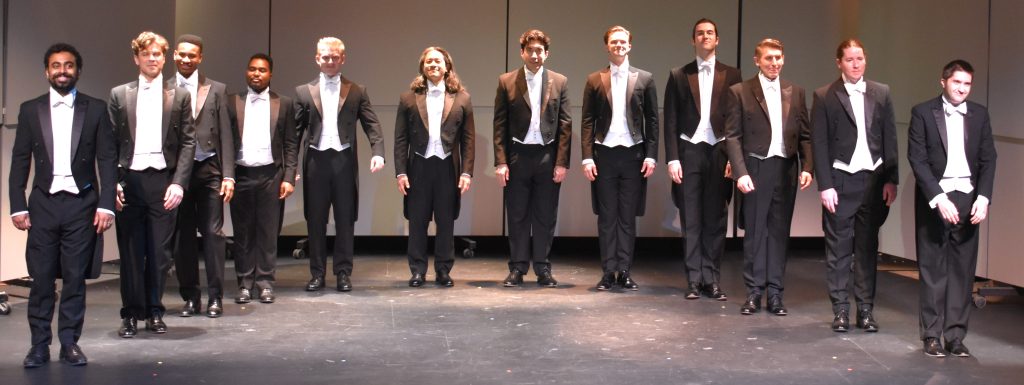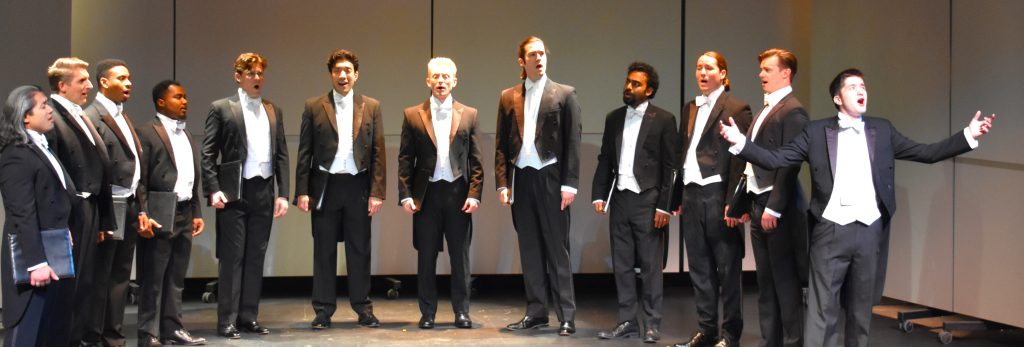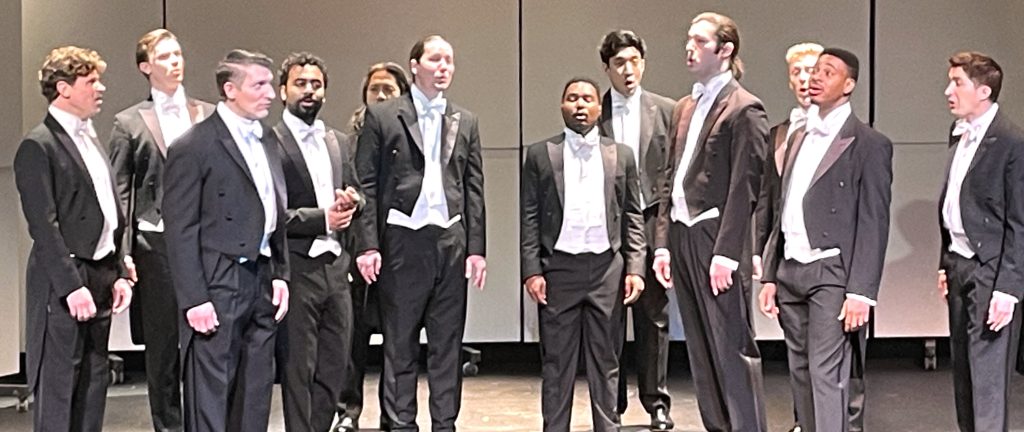
by Kevin T McEneaney
Last Friday night the twelve-man choir Chanticleer performed to a capacity audience in Gardner Hall. Chanticleer was founded in 1978 by tenor Louis Botto to showcase medieval and Renaissance music; their repertoire of over fifty CDs has covered many genres and periods, as they garnered several GRAMMY awards. With six countertenors, they were in exuberant form on the school stage.
The name Chanticleer is the name of a character in medieval French pastoral fables about Reynard the Fox; in the Canterbury Tales, there is a character named Chanticleer in “The Nun’s Priest’s Tale.” Over this past decade, Chanticleer has traveled around the globe, singing in various languages.

They opened with “Lost in the Stars” by Kurt Weil, one of their 1995 noted arrangements by Gene Puerling, which appears on their 1996 album of that title. The audience was lost in a soundscape that made us feel for a few minutes that we were lost in the stars.
Next up was Abendständchen from Max Rexger’s legendary ten-song cycle, from which they sang four of the Ten Songs for Male Choir during this concert, the last being the humorous song “Eine Gantz neue Schelmeys” about a gang of impoverished rogues with stanzas like: “We’re of no use for any service, except to the noble wine drinker. We serve him gladly, never lazy: Every bottle finds its way to our mouths.”

They performed a delightful version of “Stardust” by Hoagy Carmichael,” arranged by bass-baritone Jared Graveley. Posture and gestures by singers on stage enhanced dramatic inflection.
Stephen Sondheim’s poignant “I Remember” offered a memorable isolation from the daily pleasures of nature. I can’t mention every song in this astonishing two-hour program that transported the audience into an Otherworld of multi-dimensional sound as it rang from the voices of tenors, baritones, bass, and counter-tenors.

I was most impressed by “I am a Tree” from the sequence The Rivers are our Brothers by Majel Connery (b. 1979), arranged by Connery and Doug Balliett. The theme of human identification with the natural landscape offered a powerful metaphor for our self-conscience place in nature, as we are children who have evolved from nature. This poetic work deserves to be an international anthem for those who wish to preserve our future. “I miss you like I miss the trees” was an impressive emotional declaration.

The theme of ecology continued with songs about the air we breathe, the clouds we see, the water we experience, and the snow that falls. The evocations of elements, flowers, and the seasons that evoked another deep, wondrous mood.
They sang with fragile nuance and nostalgia Vince Peterson’s arrangement of “Both Sides Now” by Joni Mitchel, which appears on their current album release.
Extensive program notes by music director Tim Keeler aided the journey through these remarkable sounds. Acoustics in Gardner Hall were excellent and enhanced a soundscape that provided perhaps the most amazing performance that the Trinity-Pawling music series has ever offered to the public.
